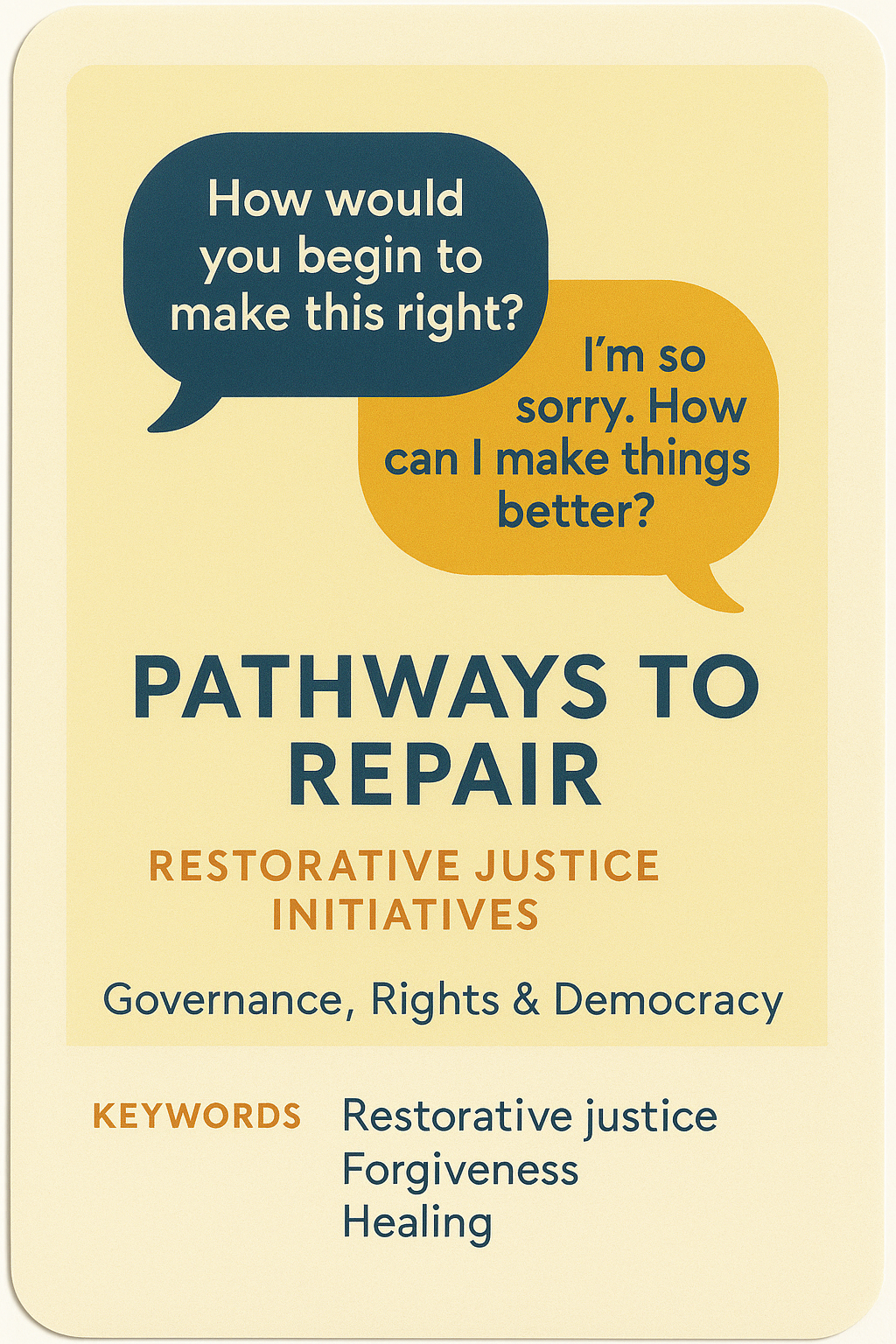Control Panel
Michael Jordan Opens Fourth Free Health Clinic in Hometown
Millions of Americans lack reliable healthcare access. Jordan’s philanthropy directly addresses gaps in community health by funding infrastructure and removing barriers like cost and transportation. His hometown model could inspire similar efforts nationwide
Pathways to Repair
Pathways to Repair offers a dynamic, accessible model for transforming division into dialogue. Through story-based engagements and facilitated discussions, they equip participants to engage with empathy and accountability across lines of difference—including political, racial, and generational divides. In a time of increasing polarization, their work helps build the social cohesion and trust needed to create resilient, equitable communities.
The School of Thought International
The world faces a rising tide of misinformation, conspiracy theories, and polarizing narratives. The School of Thought equips individuals and communities with skills like probabilistic reasoning, metacognition, and fallacy awareness—essential tools to strengthen democratic capacities and collective resilience.
Charter for Compassion
In a polarized world, compassion offers a unifying force that transcends politics, religion, and nationality. The Charter mobilizes individuals and institutions to root their work in empathy, equity, and moral courage—key ingredients for inclusive and just societies.
August 8th- THINK VISUAL with Amélie (Ayaka) Uriu
From policy to placemaking, visual tools help people of all backgrounds make sense of complexity and co-create solutions. THINK VISUAL creates an accessible space to learn and practice human-centered techniques that honor community voices and advance shared goals.
Healing a Village: A Practical Guide to Building Recovery-Ready Communities
Addiction is not just an individual crisis—it’s a community crisis. This book offers a practical roadmap for how neighborhoods, cities, and service systems can step up to become safe, supportive environments for recovery. It centers lived experience, shared leadership, and systemic change as key components of healing.





